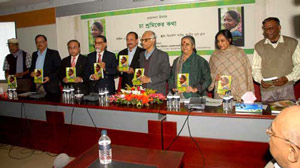
Presidential Pardon of 20 of Prisoners on Death Row
On 7 September 2010, President Zillur Rahman pardoned 20 prisoners who had been sentenced to death. Amnesty International (AI) took this occasion to argue for the pardon of the over 1,000 prisoners remaining on death row in Bangladesh. AI explains how the sentencing of these 20 prisoners (accused of involvement in the death of a Bangladesh Nationalist Party activist) was illegitimate as the victim was an advocate for the party (the BNP) that was in power at the time. Concurrently AI considers that the pardoning of these prisoners is strictly political as it seems that all 20 prisoners are supporters of the current ruling party, the Awami League.
AI has serious issue with the political controversy surrounding the trial and pardon of these prisoners as it infers that some death row inmates may be denied valid pardons for political reasons. Furthermore, AI states that the death penalty violates the Universal Declaration of Human Rights.
As a result AI petitioned the President of Bangladesh to impose a moratorium on all executions in Bangladesh citing that it would be in line with a UN resolution that received majority support within the UN. These are attempts by AI to appeal to President Rahman based on his ability to garner international political support by bringing Bangladesh in line with AI’s belief that the death penalty, regardless of the reason, is cruel and inhuman. AI wants President Zillur Rahman to not only pardon and commute the sentences of current death row convicts, as well as impose a moratorium on future death sentences, but also re-open the investigation of the murder for which the original 20 prisoners were convicted.

